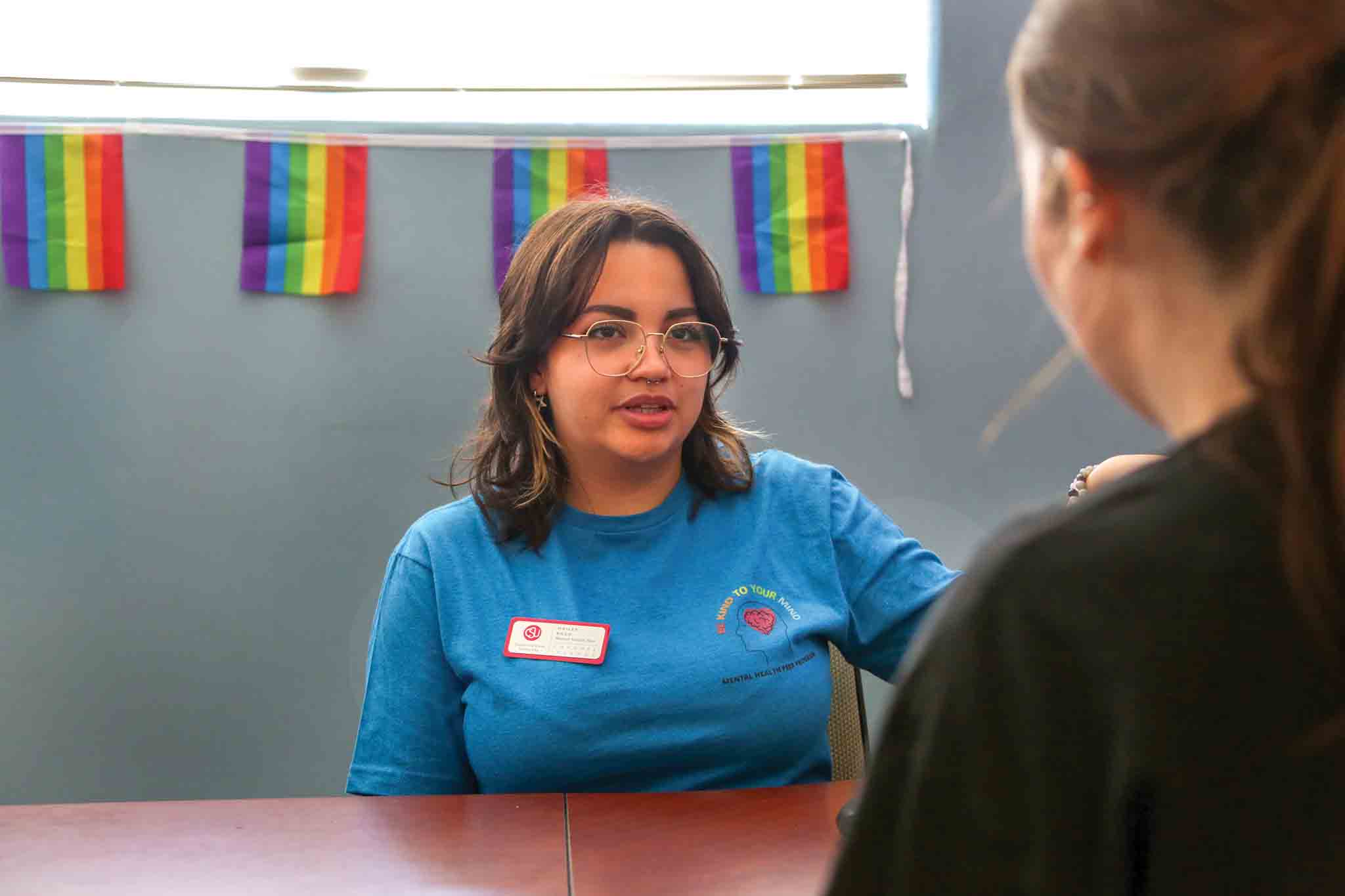 Psychology student and Mental Health Peer Hailey Razo speaks with a student.
Psychology student and Mental Health Peer Hailey Razo speaks with a student.
A senior majoring in Psychology, Sierra Hofman is all too familiar with the mental health challenges that students earning their college degrees can experience. That’s why she serves as a trained peer counselor in the Mental Health Peer Program offered through CSUCI’s Counseling & Psychological Services (CAPS).
“For students experiencing isolation, stress or anxiety, sometimes the best medicine is talking with a peer,” Hofman said. “It can be intimidating to go to a professional clinician, especially if it’s something you’ve never done before. A peer can offer a level of comfort and understanding that might encourage students to reach out for help in the first place.”
Since Fall of 2022, CSUCI’s Mental Health Peer Program (MHPP) has served as a bridge between students and the licensed clinicians in CAPS. In a collaboration between CAPS and the Psychology program, MHPP enables seniors majoring in psychology to gain for-credit internship experience by supporting peers who are navigating school anxiety and other mental health challenges. The program’s nine peer counselors are thoroughly trained and supervised by CAPS clinicians Jennifer Maravola, Stacy Udolph, and Senior Director Kirsten Olson, in collaboration with Psychology Professor Kevin Volkan.
Through one-on-one peer counseling sessions and daily drop-in availability at the CAPS Peer Support Center, Mental Health Peers provide a safe and supportive environment for students to discuss feelings, experiences, and challenges in university life. They actively listen, provide helpful insights and coping strategies, and connect students to vital campus resources and CSUCI clinicians when necessary.
“For several years, and especially since COVID, students have been reporting an increased sense of isolation and loneliness,” said Olson. “Many felt like they were disconnected and anxious and living their lives virtually. Talking to a peer helps them feel more connected and less isolated. It gives us another option to help students.”
In a 2023 Gallup poll of more than 2,400 college students, 66% reported experiencing stress and 51% reported feelings of worry “during a lot of the day.” A 2023 State of Higher Education report said that emotional stress was among the top reasons students considered dropping out of college. According to a nationwide study by the Born This Way Foundation, one in five college students said they already use peer counseling and, of those who had not used it, 62% said they wanted to.
During the pandemic, Olsen partnered with Nursing faculty member Jackie Sherman and six Nursing students to develop the program. The students presented a full proposal, with training materials, policies, and procedure manuals to University administrators and won an initial $500 mini-grant from the Center for Multicultural Engagement with which the program was founded.
Karly Eaton, one of the first Mental Health Peer counselors, is now a master’s student in UCLA’s Social Work program.
“Having social workers and other licensed mental health specialists as my mentors and supervisors was an amazing blessing in my education,” she said. “The training I received at CAPS allowed me to learn how to work with individuals who are going through their own personal struggles and has given me the tools and knowledge I need for grad school. I do not believe I would have been accepted into UCLA without this internship.”
